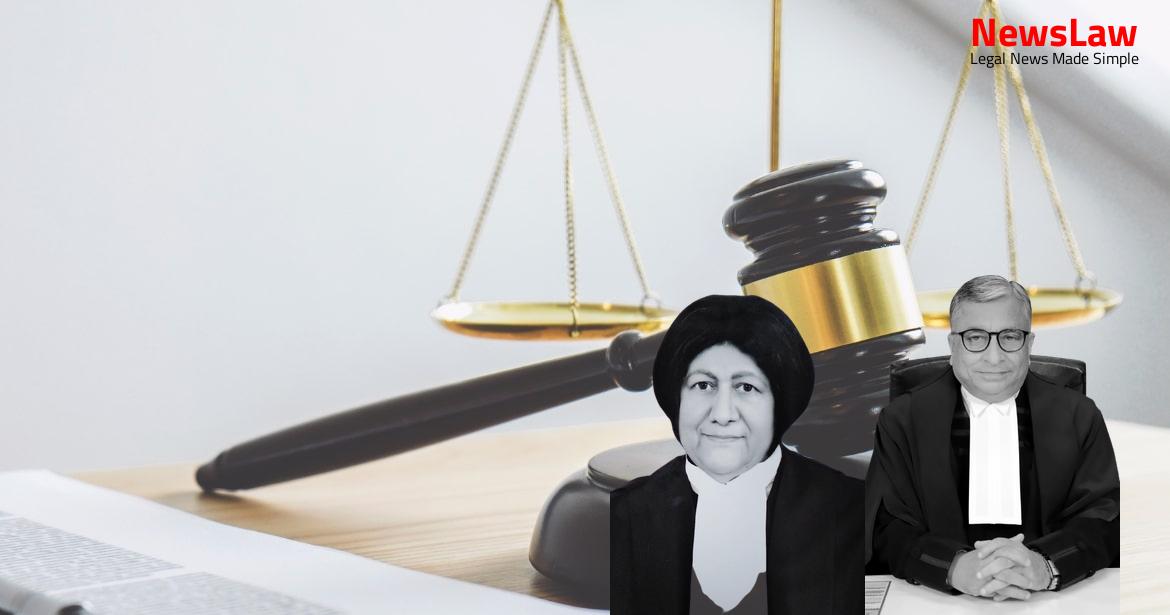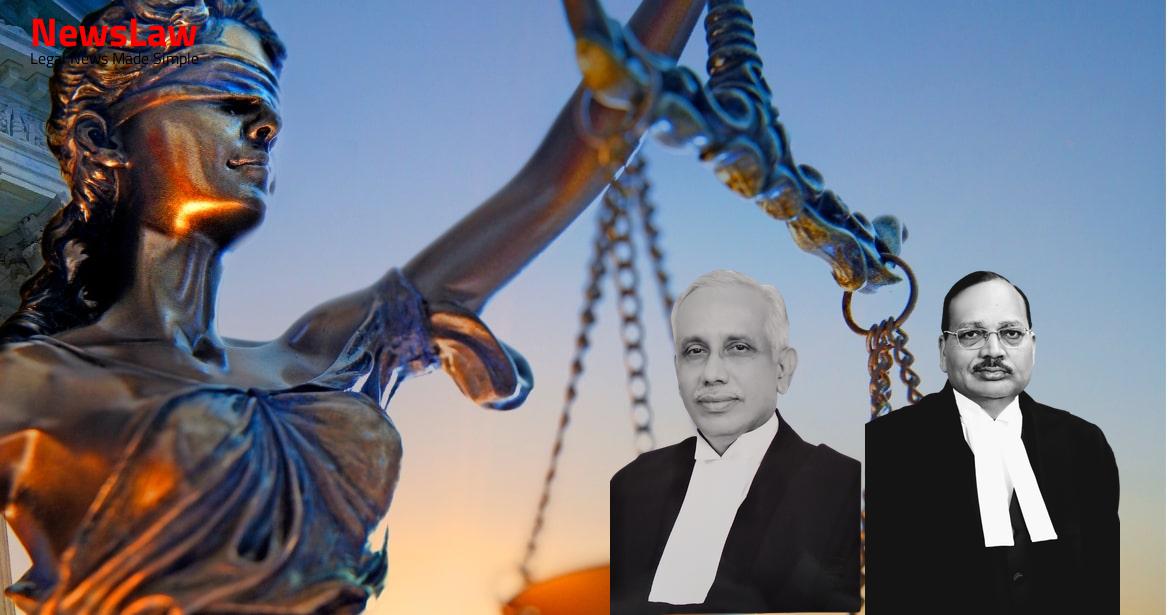Delve into the critical examination of the court’s legal analysis in bail decisions, where constitutional rights intersect with the gravity of the offence. Maintaining a balance between freedom and social order is key in upholding the principles of justice in the legal system.
Facts
- The petitioner was apprehended on 06.10.2020 based on secret information received by the investigation agency about his arrival at Poonkunnam.
- After committing the crime, the petitioner abandoned his car and absconded with the help of his brother, worker, and friend.
- Section 302 was added after the death of the victim, and an Inclusion Report was filed in the Jurisdictional Court.
- The victim separated from the accused and started living in her own house due to misappropriation of money from the clinic and harassment by the accused.
- The victim was forced to undergo an abortion by the accused despite becoming pregnant.
- The victim, who started a Multispeciality Dental Clinic with support from her father, met the accused after her divorce.
- The victim succumbed to her injuries on 4 October 2020 and the accused was arrested on 6 October 2020.
- The materials on record indicate the petitioner attacked the victim with a knife causing serious injuries to her vital organs.
- The accused stabbed the victim in her dental clinic on 28 September 2020, leading to the registration of a case under multiple sections of the IPC.
- The High Court of Kerala granted bail to the accused, leading to an appeal by the State of Kerala against the decision.
- The Accused Respondent was in custody since 6 October 2020 as per the findings of the Apex court.
- The High Court granted bail to the Respondent Accused despite opposition from the Public Prosecutor.
- The impugned order allowed the Bail Application on stringent conditions due to the seriousness of the allegations and heinous nature of the incident.
- The High Court found reasonable grounds to conclude that granting bail may hinder the prosecution from presenting evidence.
- The Public Prosecutor opposed the bail application citing concerns about the Accused influencing witnesses who were close to him.
Also Read: Challenging Conviction: Legal Analysis Spotlight
Arguments
- Prosecution raises objection that deceased is from Ernakulam and all witnesses are from Thrissur, fearing influence from petitioner
- Deceased suffered multiple stab injuries on the abdomen showing brutality of crime
- Argument against High Court’s decision to grant bail based on the gruesome murder committed by the accused in front of victim’s father
- Claim that restraining accused from entering certain limits won’t prevent influencing or threatening witnesses
- The Respondent Accused argued that bail once granted should not be cancelled in a mechanical manner without considering supervening circumstances.
- The power to grant bail under Section 439 of the Cr.P.C is discretionary and must be exercised judiciously.
- Grant of bail should not be a matter of course and should have cogent reasons supporting it.
- All relevant factors must be considered when weighing a bail application, including the gravity of the offense, evidence showing the applicant’s involvement, possibility of absconding, witness tampering, and danger to the victim or witnesses.
- The Court usually does not entertain a petition for Special Leave to Appeal against bail-related orders.
- The bail application for the Respondent Accused was allowed with stringent conditions, including restrictions on entering certain areas and maintaining distance from witnesses until trial proceedings.
Also Read: Interplay of Limitation Act and IBC in Time-Barred Application Case
Analysis
- Bail applications must consider severity of punishment upon conviction, not just the seriousness of the charge.
- The High Court did not adequately consider the severity of the punishment if the accused is convicted.
- The bail jurisprudence emphasizes that the grant of bail is the rule and refusal the exception, with gravity of the offence taken into account.
- A balance needs to be maintained between constitutional rights and the gravity of the offence while granting bail.
- The High Court’s decision to grant bail did not consider the gravity of the offence properly.
- The High Court neglected the reasons given by the Sessions Court in rejecting bail for the accused.
- There was no proper consideration of the evidence and materials on record supporting the belief that the accused committed a heinous offence.
- The High Court’s decision did not adequately address concerns about witness tampering or threats to the complainant.
- The grant of bail should be re-evaluated if circumstances change such that a fair trial is no longer possible while the accused remains free on bail.
- The discretion to grant bail is to be exercised with care and caution by balancing individual liberty and societal interest.
- The court must consider various factors case-by-case, including the seriousness of the charge and the need to secure the accused’s presence for trial.
- The order of granting bail should not be based solely on precedent but on the facts of the case at hand.
- Punishment begins after conviction, and an accused is deemed innocent until proven guilty.
- The nature and gravity of the offense are essential considerations for granting bail, along with other factors like the likelihood of absconding and influencing witnesses.
- The appellate court assesses the correctness of granting bail differently from assessing a bail cancellation application.
- Generally, there should be substantial reasons for bail cancellation, such as interference with justice or the possibility of the accused absconding.
- The Respondent Accused’s counsel argued for maintaining bail, highlighting the lack of interference with the justice process.
- References to judgements like Dolat Ram highlight the need for cogent reasons to cancel bail and the principle that liberty should not be deprived as a form of punishment.
- The orders of the Court do not require release of under-trial prisoners charged with murder, especially before investigation is completed and chargesheet is filed.
- The Respondent Accused is charged with murder in the presence of an eye witness.
- The bail was granted even before the chargesheet was filed.
- The Respondent Accused had been absconding after the incident.
Also Read: Analysis of Contempt Charges for Breach of Undertaking
Decision
- Chargesheet was filed on 01.01.2021.
- The Appeal was allowed and the High Court’s order was set aside.
- The Respondent Accused will be taken into custody.
- Copies of the order will be sent to the Police Station and Jurisdictional Chief Judicial Magistrate.
- Pending applications, if any, will be disposed of.
Case Title: THE STATE OF KERALA Vs. MAHESH (2021 INSC 195)
Case Number: Crl.A. No.-000343-000343 / 2021



